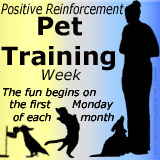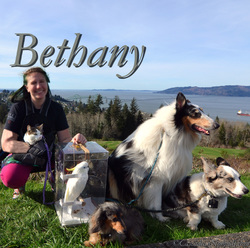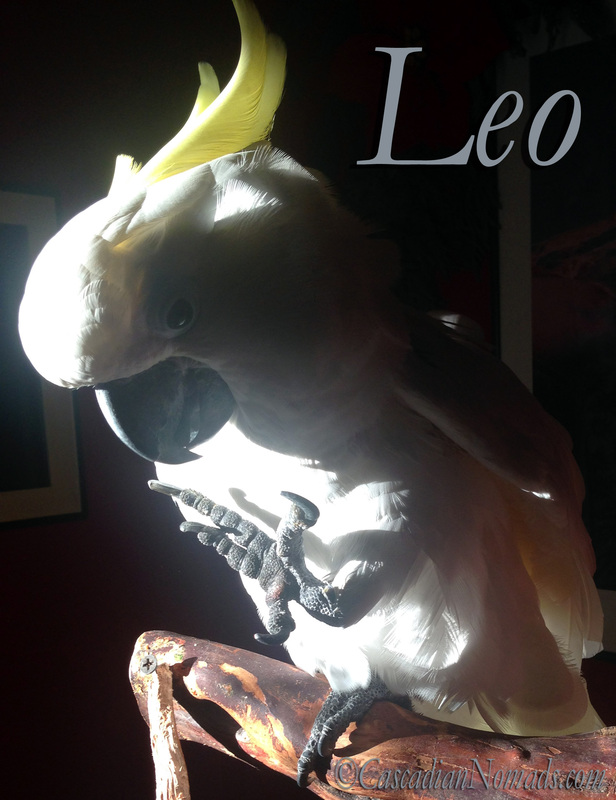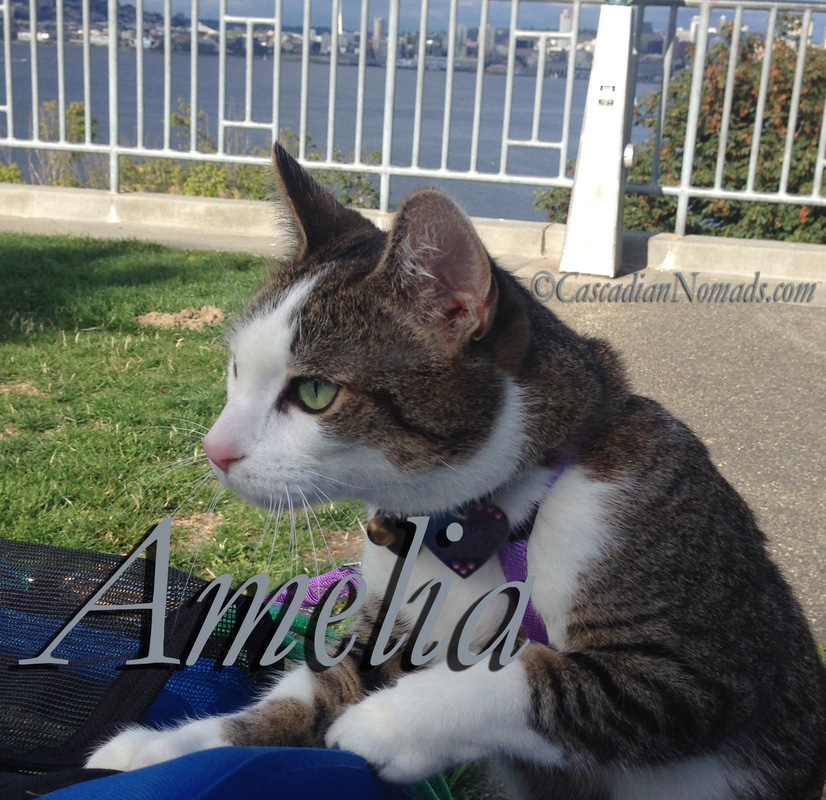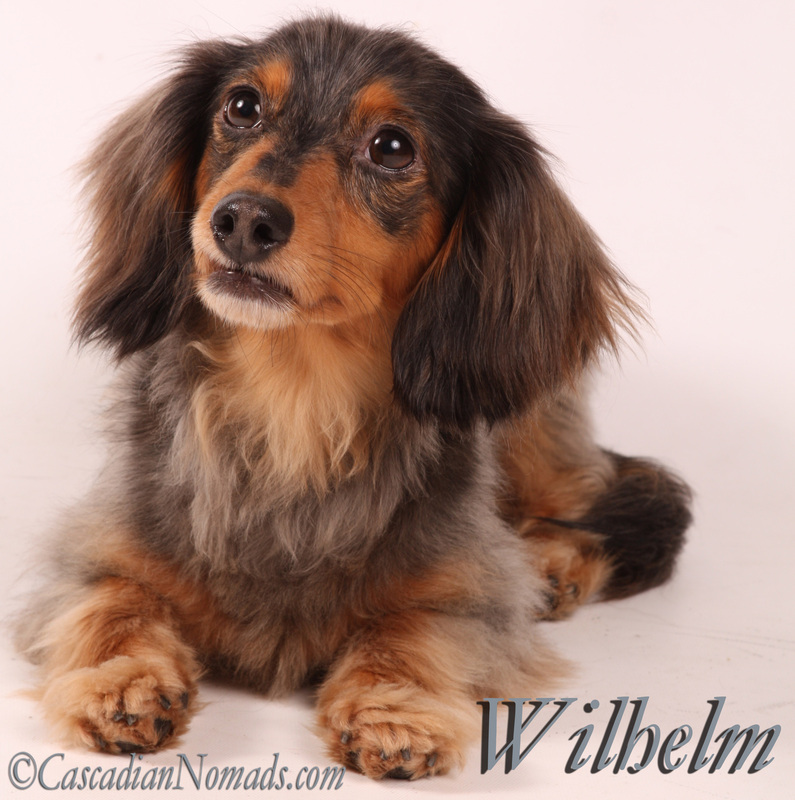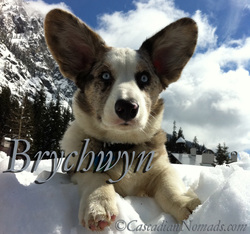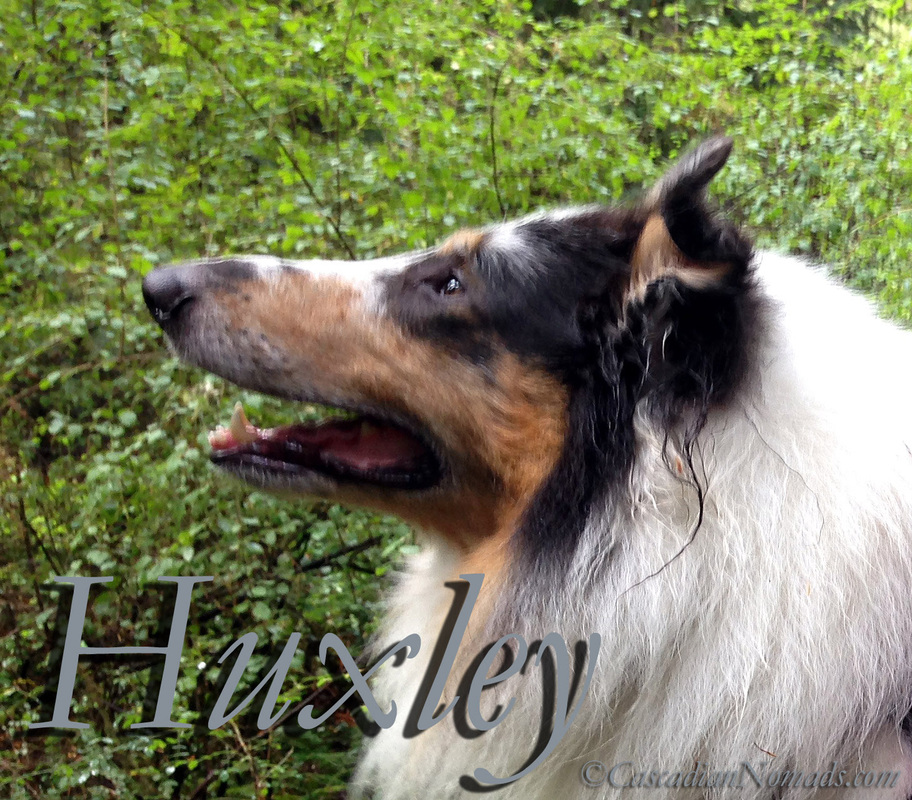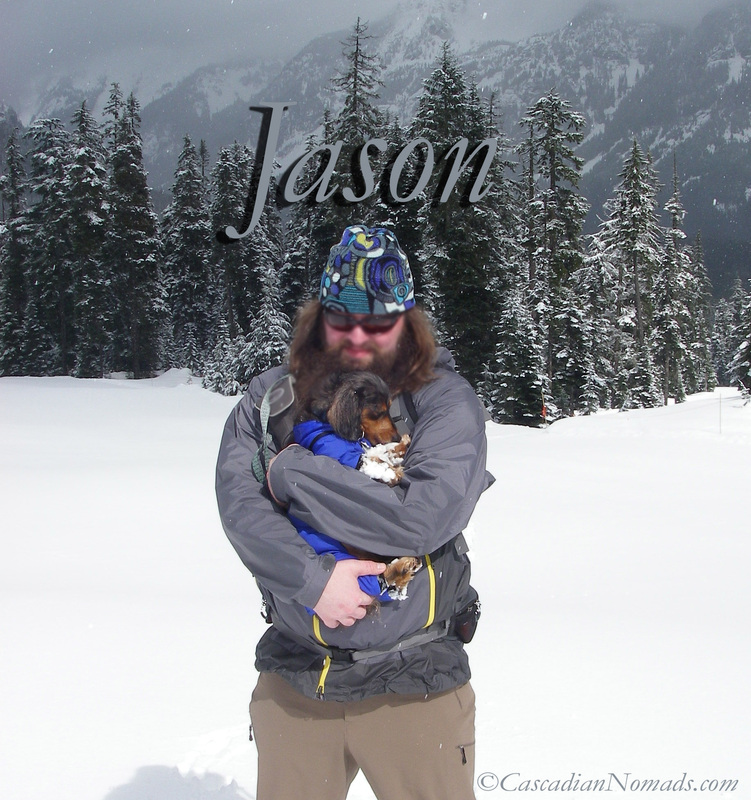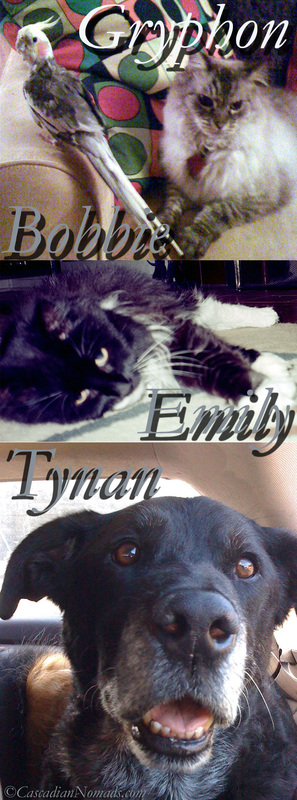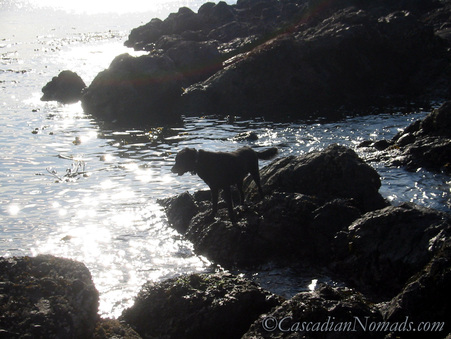 Though not a swimmer, Tynan always loved time spent near water.
Though not a swimmer, Tynan always loved time spent near water. On a particularly stormy and wet autumn trip to First Beach, Washington, one-year-old Wilhelm and nine-year-old Tynan were having the time of their lives running through and around barn sized mounds of sea foam. Both dogs always did an excellent job of keeping a close off-leash radius and checking in frequently so I knew when they disappeared behind some driftwood and stayed for a while, they had probably found something "interesting." There was more of a pause than there should have been for them to return when recalled. By then I was close enough to see what they had gotten into; a washed up salmon. Simply thankful that the dogs had not rolled in the dead fish, I asked them to leave it and we avoided the carcass for the rest of our visit.
The incident with the dead salmon was completely out of my mind when I took Tynan and Wilhelm to their annual veterinary checkup appointment a few days later. In casual conversation with my veterinarian during the exam, the doctor got to hear all about our recent adventure on the beach. I babbled on to the vet that both dogs had to be bathed upon our return because of the chases through the massive piles of sea foam but I was so glad they hadn't rolled in the dead salmon. The sudden change in the doctors demeanor surprised me. "Dead salmon?" he queried, "they didn't eat any of it, did they?" I replied that I wasn't certain. Maybe? Probably? It did look like they were chomping during the brief ignoring of my recall. But so what?
My vet then gave me what I look back on now as one of the top shocks on my life. He told me about Salmon Poisoning Disease. And I wish he had asked me to sit down first. I felt so weak and helpless as he asked me if Tynan or Wilhelm had any symptoms like vomiting, diminished appetite, diarrhea, lethargy or dehydration. I thought I would have mentioned such severe symptoms at the beginning of the exam but now that the dogs lives were at stake, I meticulously retraced each and every moment in the days since the dead salmon encounter at the beach. Fortunately, both dogs were symptom free. The vet told me that he has seen dogs go from beginning symptoms to death quite quickly so he recommended that Wilhelm and Tynan start on antibiotics immediately.
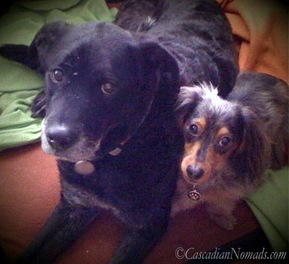 Completely innocent of rolling in dead salmon.
Completely innocent of rolling in dead salmon. My second regret is that I didn't keep my dogs safe from Salmon Poisoning Disease to begin with. I didn't even know the disease existed and ignorance is never bliss, especially where my dogs health is concerned. A huge part of the shock that occurred when my vet told me that Tynan and Wilhelm's lives were in danger was my lack of knowledge. I have been sharing Cascadian beaches with dogs since I was a toddler but had never even heard of this disease. My research after my dogs brush with the disease proved that I am not alone. While Salmon Poisoning Disease is a dangerous killer in the Pacific Northwest, very few dog owners are aware of it nor do they take precautions to keep their dogs safe. Since that day at the vet, beach time with my dogs has never been the same. I am always on constant alert. I plan to never rely on accidental babbling with the vet to save my dogs lives again. I work hard to avoid beaches during salmon spawning times. I am constantly on alert for any beach debris especially objects with birds nearby. If my dogs to ever got near raw salmon, salmon fishing or anything that might put them at risk for the rickettsial organism again, I would treat them regardless of symptoms just like I did when Tynan and Wilhelm didn't roll in the dead fish.
| We are participating in the Round Robin Caring for Critters hosted by Heart Like a Dog. Please visit the community page here to enjoy other bloggers Caring For Critters stories. |
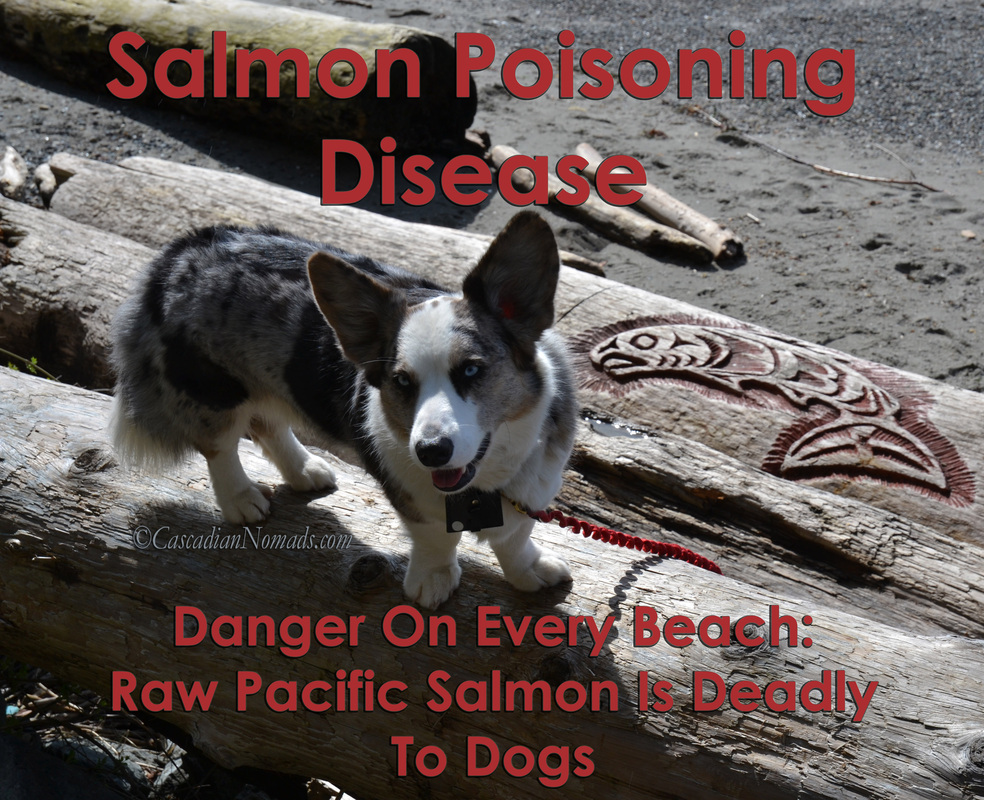
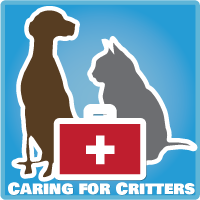
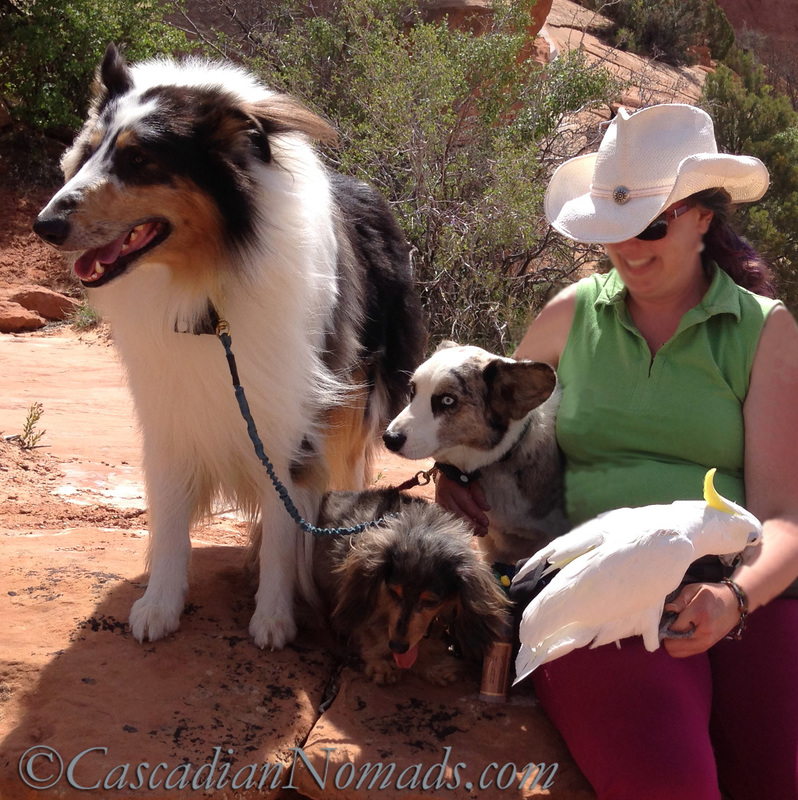
 Follow on Instagram
Follow on Instagram



